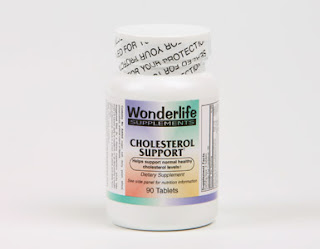Monday, January 28, 2008
Vitamin B Complex Information Page. All About Vitamin B
Vitamin B comes from a number of natural sources, including potatoes, bananas, lentils, chilli peppers, tempeh, liver oil, liver, turkey, and tuna. Nutritional yeast (or brewer's yeast) and molasses are especially good sources of Vitamin B. Vitamin B5 helps reduce stress and manage stress hormones. Various B-complex vitamins assist in cellular energy production, by forming adenosine triphosphate (ATP), the cells' energy source. B vitamins are easily flushed out of the body, and people on weight-loss diets, alcoholics or those who take antibiotics or seizure drugs are even more inclined to have vitamin B deficiency. B3 - Niacin is an effective aid for lowering cholesterol, as well as to promote healthy skin. B6 - Pyridoxine is needed for almost every function in the body, working as a coenzyme for numerous enzymes. Folic acid - Essential during pregnancy to protect against birth defects; stabilizes homocysteine levels.
Vitamin B complex supplement are highly popular and for good reason - many people who are feeling tired, lacking in energy feel the benefit of this type of supplement. Most multivitamin-mineral products contain the B-complex along with the rest of the essential vitamins and minerals. B1, known as thiamine. Vitamin B-complex includes several different components, each of which has the potential to interact with drugs. The B vitamins work together to boost metabolism, enhance the immune system and nervous system, keep the skin and muscles healthy, encourage cell growth and division, and other benefits to your body. The B vitamins work together to boost metabolism, enhance the immune system and nervous system, keep the skin and muscles healthy, encourage cell growth and division, and other benefits to your body.
Getting Enough B Vitamins
 With all the negative reports about pork, it's hard to believe that there is anything good to benefit from eating the meat. Pork is actually a great source for numerous nutrients. The B vitamins are nutrients for which pork provides the best source. The negative reports about pork are associated with the high saturated fat content of some cuts of the meat. With widespread attention on healthy eating, pork producers are striving to provide leaner cuts of pork that are comparable to beef in the amount of saturated fat.
With all the negative reports about pork, it's hard to believe that there is anything good to benefit from eating the meat. Pork is actually a great source for numerous nutrients. The B vitamins are nutrients for which pork provides the best source. The negative reports about pork are associated with the high saturated fat content of some cuts of the meat. With widespread attention on healthy eating, pork producers are striving to provide leaner cuts of pork that are comparable to beef in the amount of saturated fat.
Pork contains a significant amount of iron, zinc, potassium, phosphorous, and magnesium. These vitamins and minerals are important to proper bodily function, such as strong bones, energy, and water balance. The B vitamins in particular exist in pork in amounts comparable to other foods. A 3-oz portion of pork contains as much as half of the amount of thiamin that you need in a day. There are also significant amounts of riboflavin (B2), niacin (B3), and pyridoxine (B6). Each of the B vitamins serves a specific purpose, but collectively they contribute to general good health. Since pork is such a great source of B vitamins, it makes sense that you should include it in your diet.
If you have an aversion to pork or you prefer not to consume this meat, there are other excellent sources of B vitamins, including whole grains and nuts. Supplementation is also a good idea if your diet doesn't provide you with the B vitamins you need. While a multivitamin that contains all of the B vitamins is a good choice, medical experts recommend that individuals who are over the age of 55 focus on vitamin B-12. Studies show that of all the B vitamins, B-12 is the one that the system of the elderly may not be able to process adequately. There are many vitamins specifically formulated for the elderly that contain the recommended 25 micrograms of vitamins B-12 that this age group requires.
Although the reports associated with the benefits of vitamin B supplements are positive, it is recommended to always discuss your health concerns with someone who is trained in medicine and who knows your health background. Most of the B vitamins are not associated with toxicity, but taking excessive amounts of any vitamin is unwise.


